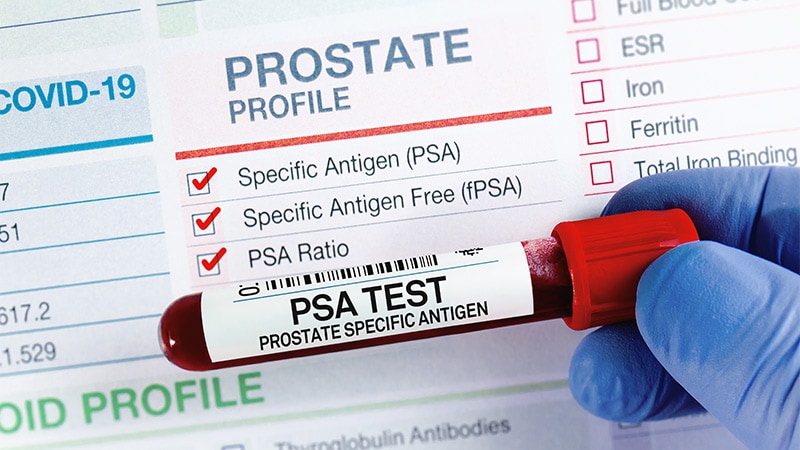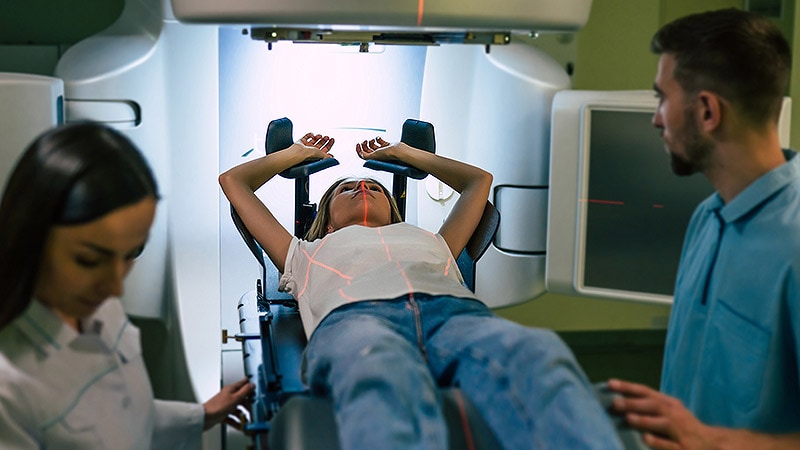A shortage of clinical oncologists throughout the UK could thwart efforts to deal with a growing backlog of cancer cases, the Royal College of Radiologists (RCR) warned.
It published new figures revealing how the supply of specialist non-surgical cancer doctors continued to fall behind NHS demand.
Patients could face poorer outcomes and less chance of having their cancer cured as a result of understaffing, infection control measures, and a predicted surge in new cases because of delays caused by COVID-19, the RCR warned.
Cancer charity Macmillan has also predicted a potential future "timebomb" of cases due to disruption to health services caused by the coronavirus.
'Stress on the System'
Dr Tom Roques, the RCR's medical director of professional practice, said the staffing shortages came into sharper focus as COVID-19 inflicted an added strain on the system. "We feel we've only just about been coping with the workload over a number of years.
"We expect there to be a bulge in cancer referrals in the autumn, which is going to put an added stress on the system," he told Medscape News UK.
Submissions for the latest RCR Clinical oncology UK workforce census report were returned in mid-December 2019, just before the start of the pandemic.
It found that:
- The NHS is understaffed by 207 whole time equivalent consultant clinical oncologists – a shortfall of 19%
- Vacant consultant clinical oncologist posts more than doubled over the past 5 years, with a vacancy rate now at 10%
- 46% of consultant clinical oncologist vacancies have been unfilled for a year or more
- UK-trained consultants would only fill around half of the current 93 vacancies
- Increased working pressures and concerns about pension tax led to half of oncologist retirees being under the age of 59
The census uncovered national differences in workforce shortfall, ranging from 14% in Scotland to 22% in Northern Ireland.
The RCR predicted that the UK shortfall could reach 26% in 2024, with the situation in Wales most severe at 33%.
Training Needs and Support for the Workforce
"The main thing that we would really want is more training numbers," said Dr Roques, who is a consultant oncologist in Norwich. "There are relatively few ways to fill the workforce gap. The main one is to have more oncologists in training, but it takes 5 years from entering a training scheme to be qualified as a consultant, so that needs planning ahead."
Dr Roques also called for improved support for the existing workforce, including "better IT in the workforce so that we can be more efficient, rather than ancient computer systems that may make it tougher to do our jobs", and "better support for people particularly towards the end of their careers, with things like flexible working", to encourage oncologists to stay in post longer.
"The retirement age has gone down from 64 to 59 in the last 4 or 5 years, so that's a big concern," he said.
Latest figures show that at the end of 2019 there were 938 clinical oncology consultants working across the UK's 62 cancer centres.
The RCR said that once retirement and part-time working was factored in, that equated to 868 full-time doctors – an increase of just five extra full-time consultants from 2018.
It said non-surgical cancer care has continued throughout the COVID-19 pandemic, but patient turnaround has slowed down as cancer centres have had to manage staff sickness, social distancing, and cleaning requirements.
Predicted Spike in Demand
"The numbers of people having chemotherapy are around 70% of what they were before the coronavirus," according to Dr Roques.
However, cancer specialists have repeatedly predicted a surge in demand for services later in the year.
A Macmillan Cancer Support survey in April of 157 people affected by cancer, found that 45 respondents said their treatment had been delayed or cancelled as a result of the impact of COVID-19.
The charity also estimated that reported disruptions in urgent GP referrals and national screening programmes could mean as many as 1900 cases of cancer a week were going undiagnosed across the UK.




